Recently, the hot weather situation has been complicated, with the risk of adversely affecting livestock farming activities. To minimize damage, farmers need to update daily weather forecasts and proactively implement measures to prevent and combat heat to protect livestock.
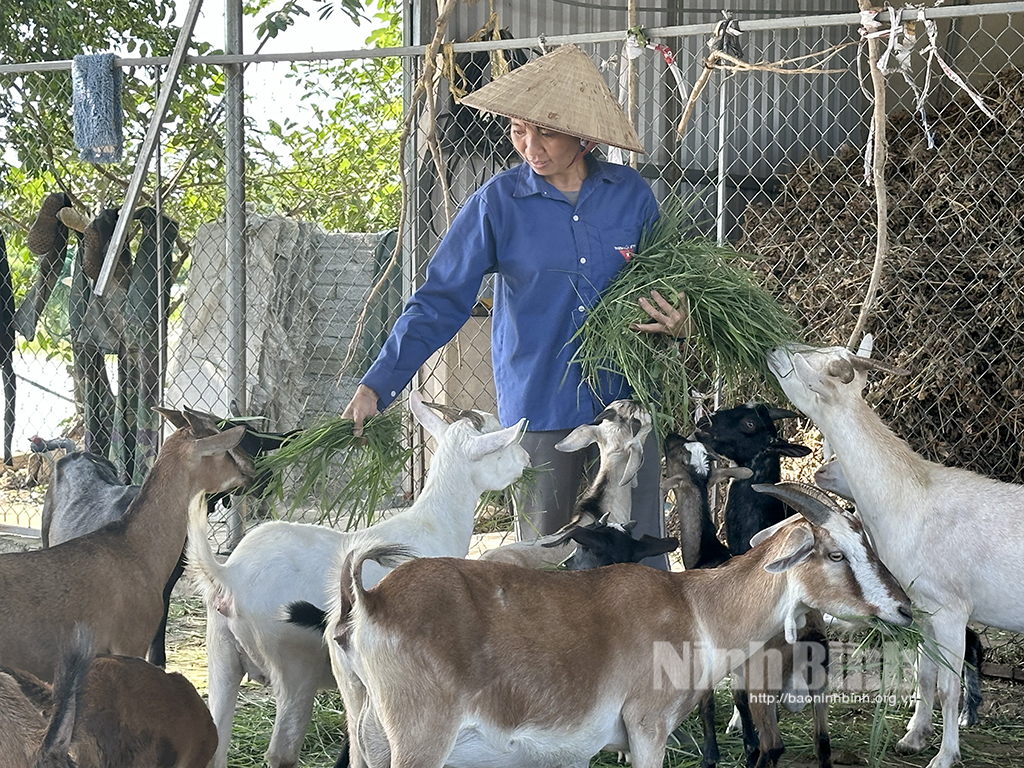
It is necessary to increase green roughage for livestock on hot days (farmers in Yen Dong commune, Yen Mo district take care of their goats).
People are proactive.
Poultry is a group of animals that are easily affected by the heat, so farmers in Ninh Binh province have proactively reduced the stocking density and cleaned the barns. In addition, regularly renovating biological bedding from rice husks helps decompose chicken manure, deodorize, keep the barns clean, create a clean, airy environment, fully vaccinate; proactively supplement vitamin C and electrolytes into the diet to help the chickens cool down and increase resistance.
With many years of experience in raising chickens, Mr. Tran Van Tu, Thanh Lac commune, Nho Quan district shared: As soon as the weather changed, before re-herding, my family reinforced the barn, used heat-resistant materials to rebuild the roof such as straw, foam, canvas...; used black mesh panels to cover, installed a water spray system on the roof. At the same time, invested in more fans to bring cool air to the entire barn; adjusted the low bedding (1-2 cm) to reduce heat, reduce stocking density; invested in a generator to backup in case of power outages.
On extremely hot days, I have to cover the water tank and water pipes to avoid the water getting too hot for the chickens to drink; especially, cut the feed from 9 to 18 hours, during the time of cutting the feed to avoid the chickens from getting hungry, mix glucose and electrolytes with vitamin K+C to help the chickens avoid hypoglycemia and effectively fight the heat.
Not as sensitive as chickens, but on hot days, livestock such as pigs, buffaloes, cows, and goats are often tired, stressed, and easily lose weight. The family of Ms. Pham Thi Huong Lan (Tay Phu hamlet, Khanh Thien commune, Yen Khanh district) raises sows and commercial pigs with a total herd of nearly 20 pigs. With the propaganda of the government and veterinary staff, on hot summer days, her family increases hygiene, disinfects barns and farming tools, absolutely does not let sewers accumulate feces and water to limit the growth of flies, mosquitoes, and lice. Carry out periodic spraying of disinfectants. Increase care, provide food, clean drinking water, periodically bathe to reduce body heat and body hygiene, prevent skin diseases for the pigs, ensuring they grow well and stay healthy. Ms. Huong shared: The price of commercial pigs is currently at a high level of 68,000 to 70,000 VND/kg, each pig is worth 6-7 million VND, the value is great so the family must pay more attention to protecting it.
Enhance knowledge dissemination
According to the forecast of the National Center for Hydro-Meteorological Forecasting, this year, the phenomenon of severe heat is likely to appear more often than in the same period of many years. In the Northern and Central regions, the heat is concentrated from May to July. This is an unfavorable condition, reducing resistance, livestock can die from heatstroke, causing economic losses for livestock households.
To protect the safety of livestock, create conditions for the province's livestock development, and complete the 2024 plan, specialized sectors and localities have been promoting information, propaganda, and guiding people to apply measures to prevent and combat heatstroke and diseases that often occur in the summer for each type of livestock; measures and techniques to treat heatstroke and heatstroke for livestock and poultry, and ensure disease safety for livestock.
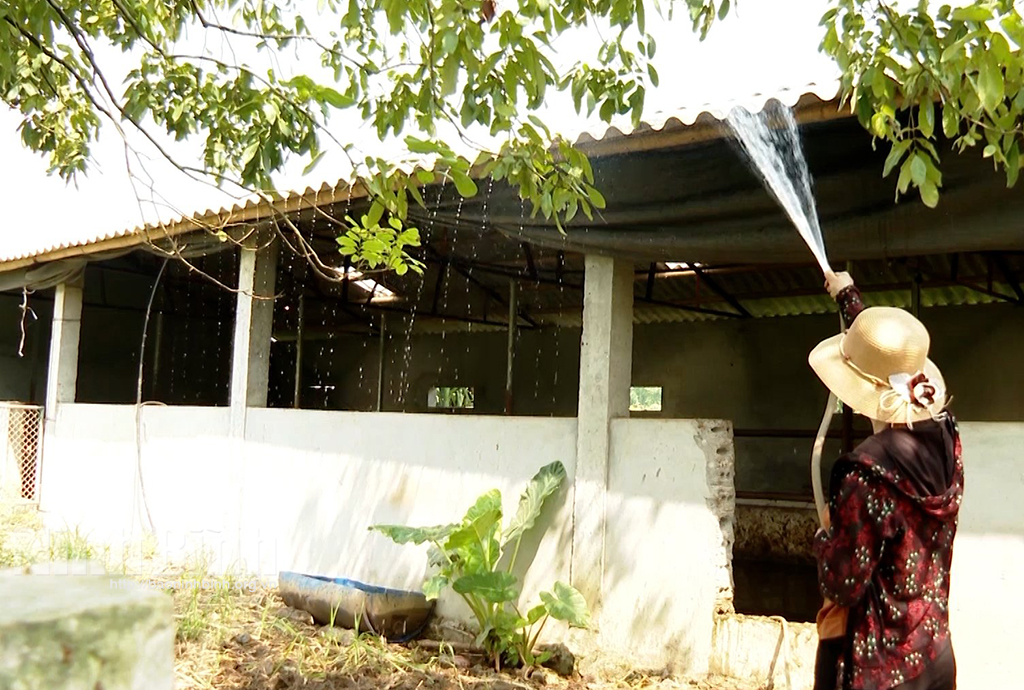
Comrade Trieu Van Giang, Head of Breed Management and Livestock Techniques Department, Department of Livestock and Veterinary Medicine of the province, recommends: At this time, people need to regularly monitor and update weather forecasts on the central and local mass media to have a proactive plan to care for and protect livestock. It is necessary to implement well and synchronously the following measures: Regarding barns, they must be high, clean and airy. Cover with palm leaves, straw, and plant climbing plants to prevent direct heat on the barn roof. On sunny, hot days, spray water on the barn roof, spray mist in the barn and arrange enough electric fans to cool down, avoiding increasing humidity in the barn.
Regarding the stocking density, for poultry, keep them at moderate density such as: brooding chickens: 50-60/m², 0.5-1 kg chickens: 20-30/m², 2-3 kg chickens: 7-10/m². If it is too hot, they can be released into the garden or under trees around the coop. For laying hens, avoid overfeeding by reducing the energy in the diet, feeding more green vegetables, and feeding good quality bran. For pigs: Stocking density for sows is 3-4m²/head, for pigs for meat is 2m²/head.
Regarding care and nutrition, increase protein-rich foods; reduce starch and fat in the diet. During prolonged hot spells, pay attention to dividing the diet into many meals, feeding in the early morning, cool afternoon and evening, limit feeding at noon, and increase the green food diet. Provide enough clean, cool water with added electrolytes and vitamins, especially Vitamin C, for livestock and poultry to drink to increase resistance and cool down.
Livestock management: For buffaloes, cows and pigs, in the hot season, you should bathe them 2-3 times a day to reduce body heat and prevent skin diseases. On hot days, between 12 and 16 hours a day, do not graze and let buffaloes and cows rest. Increase hygiene, disinfect barns and livestock equipment, periodically spray disinfectants and disinfectants to prevent ticks, gnats, flies, mosquitoes, mites... which are agents that transmit and cause diseases in the summer.
Closely monitor and supervise the condition of livestock, detect sick livestock and poultry to isolate, treat and handle promptly, especially with digestive and respiratory diseases and infectious diseases. Fully vaccinate livestock and poultry to prevent diseases.
According to information from the Department of Animal Husbandry and Veterinary Medicine, the whole province currently has about 286,18 thousand pigs (up 2.4% over the same period in 2023); over 48,3 thousand buffaloes and cows (up 0.3%); 24,6 thousand goats (up 1.8%); 6.49 million poultry (up 2.9%).
As of June 17, 2024, districts and cities have basically completed vaccination for livestock and poultry in the Spring-Summer crop. Of which, 2,099,553 animals have been vaccinated against avian influenza (95.6% of the plan); 30,684 animals have been vaccinated against lumpy skin disease (88.7% of the plan); 675 animals have been vaccinated against foot-and-mouth disease and 48,494 animals have been vaccinated against rabies (91.5% of the plan). Currently, the disease situation in livestock and poultry is basically under control.
Article and photos: Nguyen Luu
Source: https://baoninhbinh.org.vn/tang-cuong-bao-ve-dan-vat-nuoi-mua-nang-nong/d2024063010424235.htm



![[Photo] National conference to disseminate and implement Resolution No. 66-NQ/TW and Resolution No. 68-NQ/TW of the Politburo](https://vphoto.vietnam.vn/thumb/1200x675/vietnam/resource/IMAGE/2025/5/18/adf666b9303a4213998b395b05234b6a)
![[Photo] General Secretary To Lam visits exhibition of achievements in private economic development](https://vphoto.vietnam.vn/thumb/1200x675/vietnam/resource/IMAGE/2025/5/18/1809dc545f214a86911fe2d2d0fde2e8)















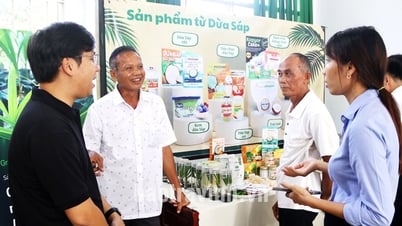

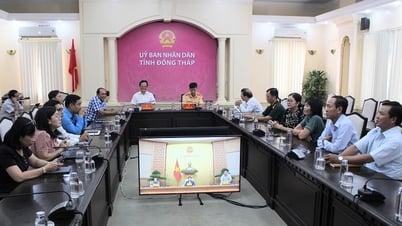








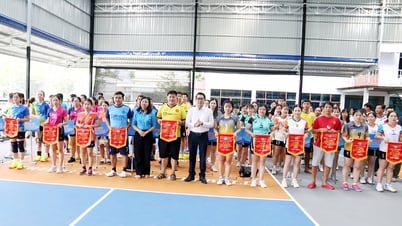











































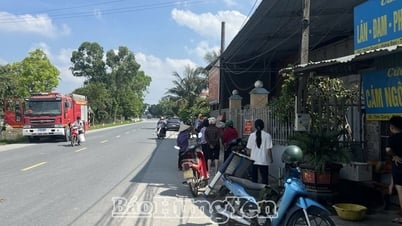




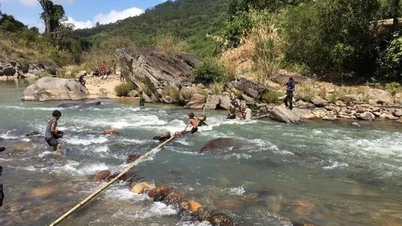
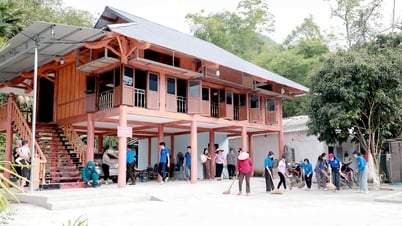

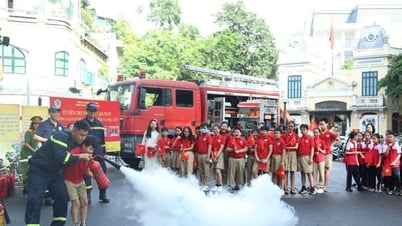








Comment (0)